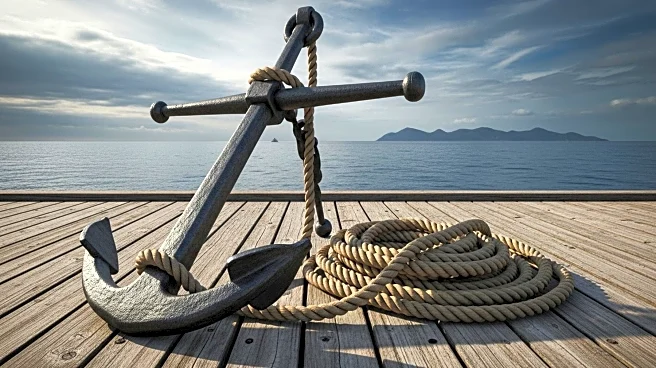What's Happening?
The Australian Maritime Safety Authority (AMSA) has raised concerns about the safety risks posed by poorly stowed and secured cargo on container ships arriving at Australian ports. Recent inspections have revealed serious deficiencies, including overloaded stacks, corroded securing gear, and inadequately secured cargo during voyages. These issues have led to incidents such as the loss of containers overboard, which can result in significant harm to people, the environment, and vessels. AMSA emphasizes the importance of adhering to the International Convention for the Safety of Life at Sea (SOLAS) and Marine Order 42, which mandate that cargo must be secured throughout the entire voyage, including during loading and discharge operations.
Why It's Important?
The implications of poorly secured cargo are significant, as they pose risks not only to human safety but also to the environment and the shipping industry. Incidents of cargo loss can lead to environmental pollution and substantial financial costs for clean-up and damage control. The reputational damage to shipping companies can be severe, affecting their business operations and relationships with stakeholders. Ensuring proper cargo security is crucial for maintaining safety standards and preventing accidents that could have far-reaching consequences for the maritime industry and global trade.
What's Next?
AMSA is urging vessel operators to enhance their safety management systems by identifying cargo risks and implementing regular inspections and maintenance of securing equipment. Training for crew members in the use of loading computer systems and lashing calculation programs is also recommended to prevent future incidents. These measures aim to improve container security and reduce the likelihood of cargo loss, thereby safeguarding human lives, the environment, and the integrity of maritime operations.
Beyond the Headlines
The issue of cargo security highlights broader challenges in the maritime industry, including the need for improved training and technology adoption. Ensuring compliance with international safety standards is essential for preventing accidents and promoting sustainable shipping practices. The focus on cargo security also underscores the importance of collaboration between regulatory bodies, shipping companies, and port authorities to enhance safety and environmental protection.









